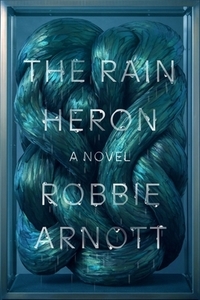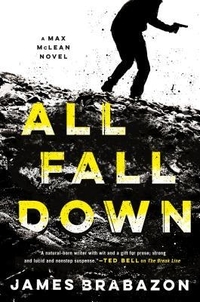The Future Is Yours by Dan Frey
 Friday, February 12, 2021 at 7:24AM
Friday, February 12, 2021 at 7:24AM 
Published by Del Rey on February 9, 2021
The Future is Yours is an epistolary novel. Text messages, emails, Twitter threads, blog posts, magazine articles, and congressional hearing transcripts are among the documents telling the story of a technology company startup conceived by two lifelong friends: Adhi Chaudry and Ben Boyce. The technology makes use of quantum physics to allow a computer to connect to itself one year in the future. Adhi conceived the idea in a doctoral dissertation and stumbled upon a way to make it work while employed by Google.
The two friends plan to market a device that will allow everyone to see one year into the future, on the theory that if everyone can do it, nobody can use the news of the future to exploit people who lack the same access. They call their company The Future.
Theoretically, the same technology could allow the computer to connect to itself at a more distant time, but Adhi can’t make the tech see even two years ahead. Perhaps humanity will be wiped out in two years. Perhaps there its just a technical bug. Ben doesn’t much care because a year is sufficient to cash in on the technology.
The Future Is Ours raises questions that are common to time travel novels. Can the future be changed or is our fate written? Is there a benefit to knowing the future if it can’t be changed? Is there any reason to attend an NBA playoff game if you can watch it online before it’s played? Does knowing the future actually shape that future? For example, if everyone knows that a stock value will rise, does that knowledge cause investors to buy the stock which causes the price to soar? Do investors engage in insider trading if they invest based on knowledge of future stock prices? Probably not if everyone has the same information, which is what The Future hopes to achieve.
A science fiction blog entry argues that A Christmas Carol was the first time travel story. Scrooge saw the future and earned a chance at redemption, but what of Marley? His ghost will drag chains forever, perhaps because he was denied the same vision of the future that benefitted Scrooge. So is knowledge of the future a good thing or a bad thing? Personally, I don’t want to know when or how I’m going to die, at least if the future is immutable (unless I’m going to die in an extraordinarily pleasant way, which would give me something to look forward to). But I digress.
As financial thrillers should, The Future is Yours investigates the ethical implications of growing or working for a billion dollar business. Most tech startups fail, in part because tech giants like Google and Facebook and Microsoft do their best to acquire or crush potential competitors. Ben and Adhi manage to raise investor capital by saying “we’ve seen the future and you’ll be rich,” but they eventually develop different visions of their company. Adhi and Ben’s wife (the company’s corporate counsel) are concerned when the news coming back from the future suggests that the company’s technology will cause widespread harm. Ben is focused on becoming a billionaire and pushes aside less immediate concerns on the theory that glitches can always be fixed later. But can the future be repaired?
The relationship between Adhi and Ben deteriorates for other reasons as well, including jealousy and infidelity. Ben sees Adhi as the tech genius who has no head for business while Adhi sees Ben as the marketing genius who has no sense of ethics. Their partnership seems very real, as do the inevitable forces that pull the friends in different directions. It doesn’t help that Google sues Adhi for stealing ideas that he partially conceived while working for Google, illustrating the extreme but common view of tech companies that they own the thoughts of their employees. A conflict between Ben’s wife (representing The Future) and her lawyer father (representing Google) adds additional spice to the story.
The novel also raises intriguing questions about the extent to which technology that has the potential to help or harm us all should be controlled by either a handful of wealthy business owners or the government (not that there’s much difference between those two groups). Some of the novel’s characters echo the call for limits on information technology while others call for making critical technology the property of the people. The military and the NSA/CIA, for the usual reasons, want complete control of the tech. The concluding chapter suggests that the novel is a cautionary tale of how technology can change the world in ways its inventors may not foresee and that reasonable people cannot control.
As a novel of ideas, The Future Is Yours should interest most readers who care about the issues it raises. As a financial novel, The Future Is Yours tells an entertaining story. As a novel of relationships, the novel reminds us of how easily money can get in the way of love and friendship. As a blend of genre fiction, the novel will probably appeal more to sf fans than to thriller fans (it is more a novel of ideas than action, although Frey does introduce an apparent murder mystery into the plot), but it should have significant appeal to most readers.
RECOMMENDED
 TChris |
TChris |  Post a Comment |
Post a Comment |  Dan Frey in
Dan Frey in  Science Fiction,
Science Fiction,  Thriller
Thriller 


